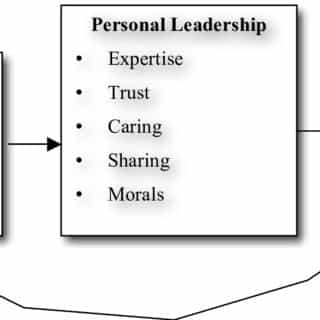French & Raven Theory of Power

This article explains the 5 Forms of Power, introduced by John French and Bertram Raven in an applied way. There are several leadership theories that explain how people are influenced by leaders, among these; the French &Raven’s model is a different one. By analyzing this theory, you can understand “where Power comes in the workplace”. Why some leaders influence us, why we are ready to accept them and what type of power (influence) they are exerting on. If you are a leader – how you can improve new power bases to get the best from your people.
Understand five forms of power
Social psychologists John R. P. French and Bertram H. Raven conducted a notable study about power in 1959. They identified that power is divided into five distinct and different forms. As we know, power and leadership are closely related. The concept displays how different forms of power affect a person’s leadership and success. The 5 bases of power are:
1. Coercive – This comes from the assumption that a person can punish others for noncompliance.
2. Legitimate – This comes from the belief that a person has the formal right to make demands, and to believe others to be acquiescent and obedient.
3. Reward – This results from one person’s capability to compensate another for compliance.
4. Expert – This is grounded on a person’s great levels of skill and wisdom.
5. Referent – This is the result of a person’s perceived attractiveness, earnestness and right to others’ respect.
After six years, Raven added an additional power base:
6. Informational – This is coming from a person’s skill to control the information that others need to achieve something
By cognizing these diverse bases of power, you can learn to use the positive ones to complete effect, while avoiding the negative power forms that managers can instinctively depend on.
Let’s drive into the five bases of power. For easy understanding, we can categorize into two groups—positional and personal.

Positional power sources
Legitimate power
Some persons have legally imposed power. The existing legal system has entrusted the power upon them. A Prime minister, President or a monarch has legitimate power. So, does a religious priest, CEO, or a govt. chief. Social hierarchies, democratic mandates, cultural norms, and organizational structure all provide the basis for legitimate power. This type of power, but, can be irregular and unpredictable. If you misplace the label or position, your legitimate power can suddenly vanish, because people were influenced by the position you held rather than by you.
Legitimate power is usually built on a role. People always run with the pack and traditionally obey the person with the power which is exclusively based on their position or label. Besides, the range of your power is restricted to situations that others consider you have a right to control. For example, if a County commissioner tells people to depart from a place of calamity, they’ll likely listen. But if he tries to make two people act more respectively toward one another, they’ll likely ignore the order.
Coercive Power
Normally, people don’t like someone who imposes coercive power upon them. So, this source of power invites dissatisfaction or resentment among the people it’s applied to. This means that someone is compelled to do something against their drive. The main aim of coercion is compliance. This form of power demonstrates what happens when obedience is not obtained. This theory says there are also other practices of power that can be used in a forced manner such as withholding rewards or expertise or using referent power to threaten social prohibition.
Punishment and threats are common coercive tools. This form of power frequently leads to problems. In many cases, this form of power is abused. Coercive power can lead to unhealthy behavior and unhappiness at work.
Reward Power
If you have positional power, in most cases you are able to give out rewards. This type of power comprises the ability of individuals to delegate matters they do not wish to do to other people and to reward them for this. For managers in an organization, it is an apparent option to value or reward their subordinates’ good results in a positive manner. If others believe that you’ll reward them for doing what you want, there’s a high probability that they’ll do it.
This power base also has limitations. For example, managers often can’t control promotions by themselves, and even CEOs need consent from their boards of directors. Or the rewards don’t have perceived value, your power may weaken. One of the frustrations when using rewards is that they often need to be bigger than the last time if they are to have the same effect. Even then, when they are given repeatedly, employees can become satisfied with the rewards and as a result, they will drop their efficacy.
Informational power
If you have great knowledge about your organization’s operations and future activities, people want to put you in a powerful position. For instance, if you have access to confidential financial reports, being aware of who’s going to be terminated or rewarded, or knowing about the next pleasure trip are the sign of informational power.
In today’s world, information is a particularly derived form of power. The power stems not from the information itself but from having entrée to it, and from being in a position to distribute, withhold, influence, distort or hide it. With this type of power, you can use the information to help others, or as a weapon or a negotiating tool against them.
Personal Power Sources
 Beyond these positional forms of power, you need a more robust source of power than a position, which may lead to you on the zenith of influencing others, an ability to reward or punish, or access to information. This will make you a true leader.
Beyond these positional forms of power, you need a more robust source of power than a position, which may lead to you on the zenith of influencing others, an ability to reward or punish, or access to information. This will make you a true leader.
Expert power
This form of power is grounded on knowledge, expertise or in-depth information. These leaders are often highly brainy and they trust in their power to realize several organizational roles and duties. If you have excellent knowledge of the matters, it is easy to make decisions and solutions. People having these capacities always come top on the hierarchy and obviously people will take you in the position of a leader.
Further, you can develop your confidence, determination and reputation for sensible thinking into other subjects and issues. This is an excellent way to shape and preserve expert power and to improve your leadership skills.
Referent Power
This form of power is based on personal liking, acceptance or approval. People will obey the instructions of a celebrity because of personal liking towards them. Referent power results from one person liking and valuing another, and identifying with them in some way. Their power is often treated with respect or admiration. In the workplace, a person with referent power often makes everyone feel good, so he inclines to have a lot of influence.
If you want to become a good leader, you don’t need a big office and an apex job title. If you distinguish the different forms of power, you can avoid being influenced by those who use the less positive ones – and you can emphasis on improving expert and referent power for yourself.


